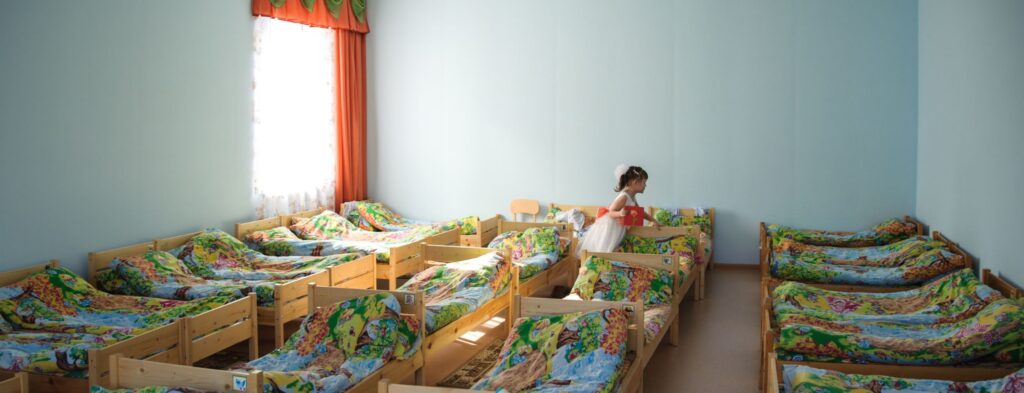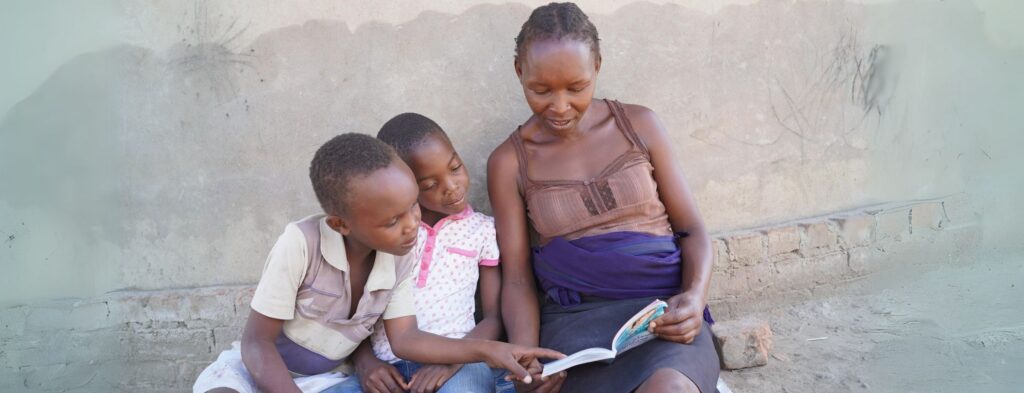Editor's Note
This article is presented by the Lausanne Children and Family (CnF) Network in partnership with the Faith to Action Initiative. To connect with the CnF network, email cnfnetwork@lausanne.org.
The research is clear—the best place for a child to grow is in the care of a loving family. But tragically, that’s not the reality for the 5–8 million children worldwide who live in residential care facilities like orphanages and children’s homes. What’s even more tragic is the fact that 80 percent of them actually have at least one living parent.
Why is there such a discrepancy? And what can we do to change it?
For mission-minded Christians who desire to help support at-risk children and influence a generation for Christ, we have the opportunity to participate in a movement that is shifting away from orphanages towards a better model: family-based care.

Children Belong in Families, Not Orphanages
Residential care facilities can provide for the physical needs of children: food, shelter, even an education—things a poor and vulnerable family may not feel they are able to give their children. However, research shows overall residential care has been proven to have a lasting, negative impact on a child’s physical, cognitive, and social development. Developmental delays, poor health, and trouble attaching and trusting all lead to increased risks later in life.
Many children leave these facilities without the skills to find work or develop and maintain healthy relationships. As adults, formerly institutionalized children are more likely to be dependent on the state and other service providers. They are more vulnerable to exploitation and are less able to contribute to economic growth in the community.
Every child needs the love, belonging and identity only a family can provide. Family relationships create bonds and attachments that support brain development in infants and promote confidence and stability into adulthood. Additionally, a child never ages out of a family, and children have support and guidance for a lifetime.
However, orphanages have been the focus of support for orphaned and vulnerable children for decades. A recent Barna study reported that American Christians alone give an estimated $2.5 billion to orphanages annually. This money could be better utilized. It costs 5–10 times more to support a child in residential care than it does to support a child in a family setting. Money sent to orphanages perpetuates a model of care that is not delivering the outcomes we would hope to see for children.
Fortunately, there is growing evidence that family-based models, such as biological parents and relatives, as well as foster care and adoption, are having better outcomes on children’s well-being around the world.
Money sent to orphanages perpetuates a model of care that is not delivering the outcomes we would hope to see for children.

Family-based Care Is Best
There are many reasons children end up in residential care, with poverty often being the underlying factor. For the vast majority of children in residential care, their families are poor and feel as if they can’t adequately care for their children. Without outside support, parents see an orphanage as a difficult but viable choice. Despite wanting to stay together as a family, sending their child away to receive the basics of food, shelter, and education sometimes appears to be the only option for the child’s survival.
Family-based care includes building the capacity of families to provide and care for children, helping them gain support and access to necessary services to meet the material, educational, and emotional needs of their children. This work helps to unify children in orphanages with their families, as well as prevent children from entering orphanages and being separated from their families in the first place.
In other cases, families are ill-equipped and struggling to care well for their children. Children who are being abused, exploited, or severely neglected can find a safe, loving alternative family with one of their relatives, or a foster or adoptive family within the community. In this case, these alternative families also need to be monitored and supported to care well for the children.
It is important to recognize that some children may need short-term, rehabilitative residential care, but those services must be temporary, always moving towards placement in a safe, nurturing family.
Decisions on children’s care must be made on an individual basis, using best practices in social work and case management, prioritizing the best interest of that specific child. By investing in family-based solutions, vulnerable children and families have the opportunity to find the right support for their unique challenges. To grow into the wholeness God desires for each of us, children need a family.
We want children to be cared for holistically—mind, body, and spirit—and this happens in a family.

Christians, We Can Lead the Way
Family based care . . . helps to unify children in orphanages with their families, as well as prevent children from entering orphanages and being separated from their families in the first place.
The shift from residential care to family care and the end of the orphanage era is a reality today. One of our partners is devoted specifically to helping local church leaders in Zambia, Zimbabwe and Malawi identify the challenges families are facing and help meet their needs to care well for their children. Another partner began her family-based global care ministry after getting burned out running an orphanage in India, and realizing she could prevent children from ever entering institutional care at all.
These are just two of many instances where men and women, convicted in their work on behalf of vulnerable children, have made incredible strides toward family-based care models.
All this change requires a concerted effort and focus on increasing family-based care options for children. Donors, volunteers, church leaders, mission teams, missionaries, organizations, community members, and governments all play a role in changing the way we care for orphaned and vulnerable children. Everyone’s efforts must shift from supporting children in orphanages and children’s homes to supporting children in families.
From micro-loans to daycare, support groups to spiritual mentoring, our support of such family-centered work can play a pivotal role in keeping families together. We can support organizations who give material support, provide assistance in accessing medical care or government services, support spiritual development of families, and offer parental education.
As a body of believers with a heart for the gospel, we believe caring for orphaned and vulnerable children honors God. But we must examine how and to whom we give our resources of time and money. Together, we can embrace the best practices and lead the shift toward strengthening families. We can show the love of Jesus to children by loving them in the context of their family.
Photo Credits
Image by Kate Holt / IRIN | www.irinnews.org from Flickr

